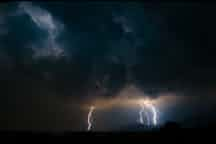Think of it as collage, from French colle paste,
glue (<Greek kólla) + -age, as in mucilage, I’d add,
Middle English muscilage <Middle French musillage
<Late Latin mūcilāgō a musty juice, akin to mūcēre
to be musty. Also see mucor if you must. But where
were we? Oh, yes, collage and mucilage. I’m glad you
asked. So to write a found poem find it in the stuff
of every day, the natural or not, who cares, language
of men and women as they work and play and carry
on in newspaper comments, for example, want ads
(personal or not), oral interviews, social media, old
letters, obits, the blab of the pave perhaps, a story
heard or overheard, an event, a quote that hangs
in the air, the dictionary too, the historical repository
of our yearnings and wanderings, and then fix your
attention like glue on the fresh phrase, throw out
the chaff, seize the good stuff in your beak, jack
daw or jill, don’t hold back, what are you thinking?
There’s so much of it, and all so tasty.
How to Write a Found Poem
Share this
Continue Reading
About the Author
A native Minnesotan, Greg Zeck taught college English and did freelance business writing in the Midwest. He’s published fiction and poetry in such magazines as Ambit, Bogg, Moon Magazine, and the Spoon River Quarterly. Ten years ago, he retired with his wife Jennifer to Fayetteville, Arkansas. Last year he published a first book of poetry, Transitions, and is coming out this fall with a second book, Lost & Found: Poems Found All Around.








